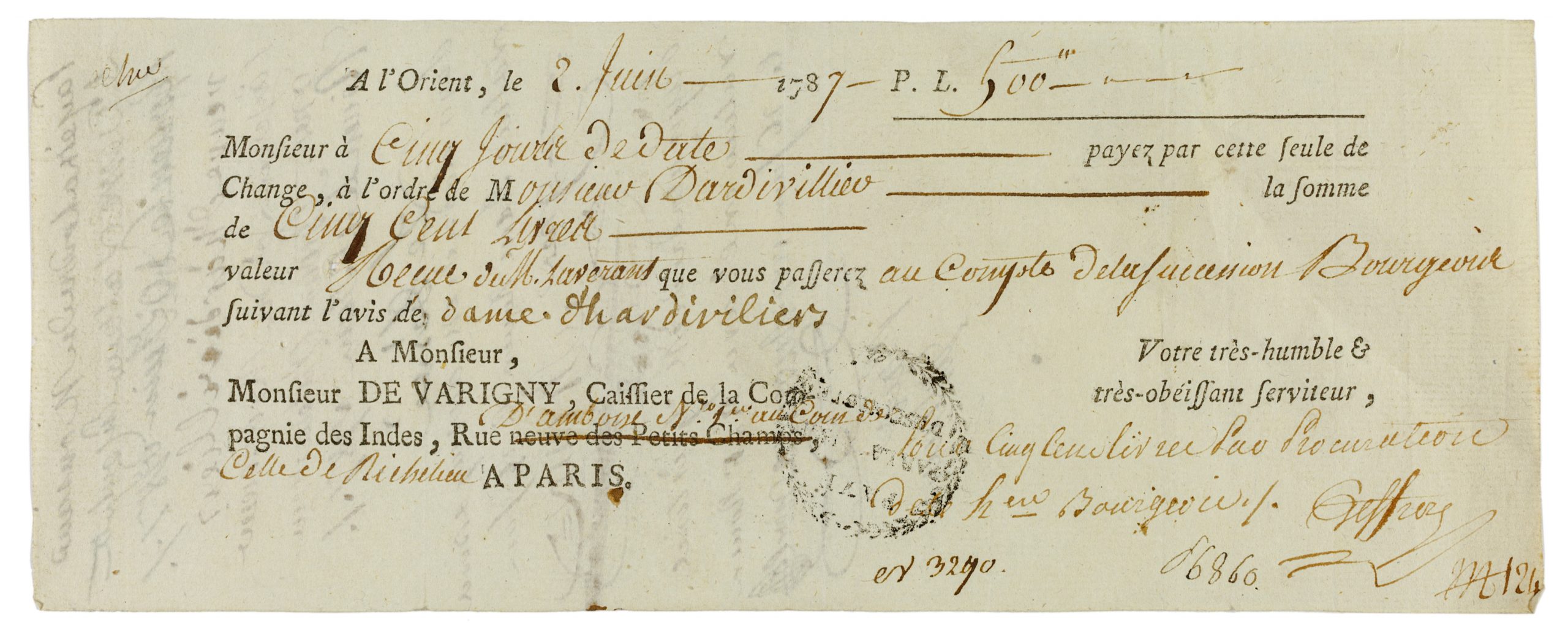The Bills of Exchange from the Compagnie des Indes [French East India Company], 1787 is a significant historical artifact of the late 18th century that sheds light on the economic and financial practices of the century. Issued by the French East India Company, a company founded in 1664, this particular bill played a pivotal role in facilitating trade routes and the import/export of goods between France and its overseas territories including India and other parts of Asia.
Bills of Exchange provided a secure and efficient means of conducting transactions across geographical and currency boundaries, while also serving as records of credit and trading networks through signatories on the back side of the bill that connected merchants worldwide. The origin of this bill is traced back to the 13th century from being used as simple promissory notes and informal merchant letters to the more structured and formalized instruments we know today. This transformation reflects not only the complex world of 18th-century trade and finance but also underscores the advanced strategies employed by companies like the French East India Company. These strategies helped stimulate the economy by using bills of exchange for both commissions and as profitable assets in their own right.

Comments are closed, but trackbacks and pingbacks are open.